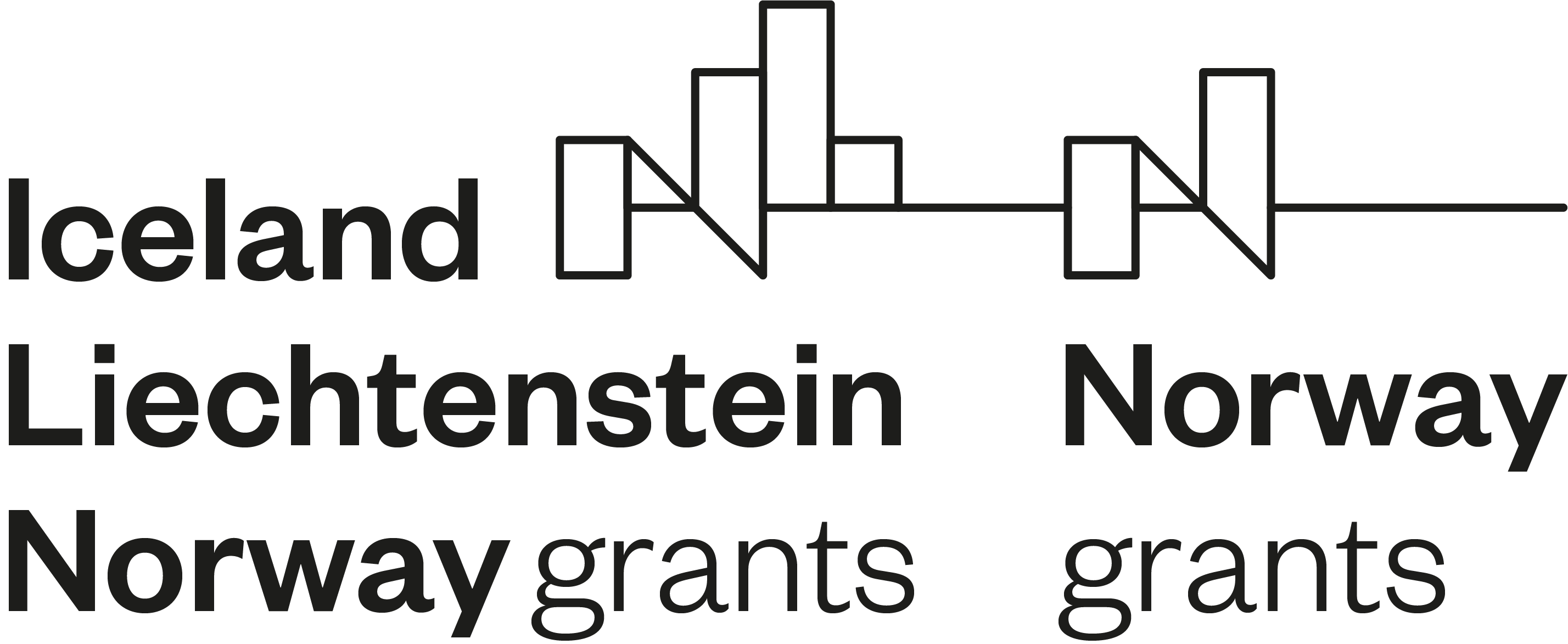Resource documents
December 16, 2021
This Country Report offers a detailed assessment of religious diversity and violent religious radicalisation in the above-named state. It is part of a series covering 23 countries (listed below) on four continents. More basic information about religious affiliation and state-religion relations in these states is available in our Country Profiles series. This report was produced by GREASE, an EU-funded research project investigating religious diversity, secularism and religiously inspired radicalisation.
December 16, 2021
The purpose of this research was to identify common and distinct factors of resilience or vulnerability to violent extremism in Bosnian communities as well as the influence of key actors on those factors.
December 16, 2021
This article has two principal objectives: (1) to study the behavioral dimensions of Muslim prisoners which predict their Islamist radicalism and (2) to study whether the behavior manifested by them is higher in prisons with a greater concentration of Muslims and a higher presence of prisoners convicted for Islamist terrorism than in prisons with fewer Muslims and no convicted Islamist terrorists.
December 16, 2021
A complete and clear conceptualization is crucial for developing prevention/intervention programs and good practices in dealing with this process which has been spreading in the past years. The final part deals with directions regarding prevention/intervention programs from a rational emotive and behavioral perspective, and also from the perspective of European policies.
December 16, 2021
Here, I scrutinize such charges by examining 18 years of radical environmentalism for evidence of violence and for indications of violent tendencies.
December 16, 2021
The report thematically presents the levels, forms, and threats of extremism in Macedonia by outlining the definitional variances between violent and non-violent extremism, the waves of Islamist extremism, the phenomenon of foreign fighters, and burgeoning nationalist extremism and its political undertones.
December 16, 2021
In view of these realities, this policy brief proposes four recommendations, based on a broader, more holistic grassroots approach, which would assist the Republic of Macedonia in moving away from a “whole-of-government” strategy to a “whole-of-society” strategy which includes all stakeholders in the CVE.
December 16, 2021
Using the data collected during the fieldwork exercise, the report aims to determine what makes each aforementioned municipality more or less affected by violent radicalisation.
December 16, 2021
In the present article, the authors report on the development of a scale for the measurement of the militant extremist mind-set.
December 16, 2021
This paper presents new data and reviews the available evidence pointing to the existence of three main ingredients of militant extremist mindset.
December 16, 2021
This report aims to depict and analyze the context of radicalisation in Republic of Serbia in the period from 2000 to 2021 as a part of the Work Package “Mapping Stakeholders and Situations of Radicalisation” of the D.Rad project. It puts emphasis on the most important acts of violence that indicate current and future trends of radicalisation and de-radicalisation; provides insight into how the political elite and general public perceive extremism, radicalisation and violent threats; and maps out the agents and channels of radicalisation and de-radicalisation.
December 16, 2021
This paper provides an overview of some of the most important research findings that have emerged on prison and violent extremism in recent years. Drawing on this research, the article synthesises and assesses the dominating themes and views in the literature. The paper also identifies a number of significant knowledge gaps that deserve further scholarly attention.
December 16, 2021
The aim of this report is to assist policymakers and law enforcement officials, both in Washington and throughout the country, by providing a thorough understanding of the kind of threat we face domestically. It also seeks to contribute to the debate among intelligence and law enforcement agencies on how best to counter this emerging threat by better understanding what constitutes the radicalization process.
December 16, 2021
To this end, the paper: (1) specifies which risk factors can be mitigated by which protective factors; (2) explains the importance of promotive factors in mitigating risk; (3) explains the importance of promotive factors in enhancing well-being and strengthening individual and societal resilience; (4) presents a kaleidoscopic overview, including implications for policies and practices
December 16, 2021
Over 1,000 adult male foreign fighters, women, and minors from the Western Balkans spent time in Syria and Iraq and around 500 from the region are still there, including children born in theater. After seven years of fighting and at least 260 combat deaths, the last active jihadi unit from the Western Balkans in Syria and Iraq is a modest ethnic Albanian combat unit fighting with Hay’at Tahrir al-Sham in Idlib.
December 16, 2021
The proposed solution is to abandon the attempt to use ‘‘radicalization’’ as an absolute concept.
December 16, 2021
Based on an in-depth literature review, this paper seeks to explore key terms and the discourses surrounding them in greater detail.
December 16, 2021
The present study is a systematic review that explores the methodological quality reporting and the psychometric soundness of the instruments developed to identify risk factors of terrorism, extremism, radicalisation, authoritarianism and fundamentalism.
December 16, 2021
This article considers the challenges associated with completing risk assessments in countering violent extremism.
December 16, 2021
This literature review begins by providing an overview of the history of risk assessment as a science and introduces key terms and theories.
December 16, 2021
This regional mapping has been produced for the project: “Communities First: Creation of a civil society hub to prevent and counter violent extremism” (the Hub).
December 16, 2021
This paper will address some of the most relevant challenges by introducing key insights and recommendations on how to follow a “do no harm” approach when informing the public, and particularly when reporting about violence. The role of civil society organisations working on P/CVE will also be highlighted.
December 16, 2021
The findings of this review suggest that approaches to deradicalisation should consider the importance of building communities through improved links between state-security, health, education and social care.
December 16, 2021
This article argues that the discourses of radicalization and, more lately, of extremism have served to confuse the remit of counterterrorism.
December 16, 2021
This paper builds on lessons learned in the EU context, and it is useful for first-line practitioners providing probation and community sanctions and measures (CSMs) services, as well as exit workers and community.
December 16, 2021
This factbook provides an overview of the fundamental elements of violent Islamist extremism to enable recognition of its symbols, vocabulary, recruitment tactics and narratives used in various settings, including online, in our schools, local communities, or prisons. There are multiple manifestations of violent Islamist extremism across the EU. Because of the national and local variations, it is impossible to provide an all-including in-depth study of the phenomenon. This factbook focuses specifically on Salafi-jihadism.
December 16, 2021
This brief issue paper provides a summary of ‘root causes’ leading to violent extremism.
December 16, 2021
The aim of the RAN Communication and Narratives Working Group (C&N) meeting held on 24 and 25 November 2020 was to explore this topic with practitioners, industry representatives and experts. During the first day of the meeting, practitioners and experts discussed emerging conspiracy narrative trends, and how these intersect with extremism. Participants offered practical insights on how to engage with individuals who either believe in conspiracy narratives or are prone to them. On the second day, participants analysed the Great Replacement and QAnon through the lens of the GAMMMA+ model and provided pragmatic recommendations to practitioners on how to counter conspiracy narratives. This paper summarises the discussions, highlights key points and recommends practical next steps
December 15, 2021
This paper first discusses the threats regarding grooming tactics on video gaming and video gaming adjacent platforms by providing background information on different models of grooming that were shared during the meeting. The similarities and differences found between grooming for radicalisation purposes and other purposes (in particular, child sexual abuse and cults) are discussed. T
December 15, 2021
. Cooperating with youth professionals and applying pedagogical methods can create opportunities for youngsters to work on the attitudes and life skills that make them resilient to ideological exploitation and the lure of extremist violence.
December 15, 2021
In recent years, the processes of radicalisation leading to violent extremism have greatly evolved. The variety of ideologies that provide inspiration for extremist groups is growing and include religious inspired extremism, left wing, anarchist and right wing ideologies as well as nationalist and separatist ideologies. Extremists are also no longer acting only as part of organised, hierarchical organisations but also within smaller cells and sometimes as lone wolves.
December 15, 2021
The paper is written for local (preventing and countering violent extremism (P/CVE)) coordinators and communications experts who are or will be dealing with returning FTFs and who wish to improve their communication strategy in this context.
December 15, 2021
This paper identifies risk factors that make these people vulnerable to violent extremism, as well as ways that professionals can assess protective factors which may contribute to safeguarding them.
December 15, 2021
This complex situation is reflected in prison and probation environments: practitioners have a responsibility to keep prisons – and the public domain – safe from terrorist activity, and must also deal with individuals at risk of radicalisation. Based on practitioners’ experiences collated in the P&P Practitioners' Working Paper ( 2 ), RAN P&P has developed an approach to prison and probation interventions.
December 15, 2021
The overall objectives of delivering CN or AN are likely to be uniform across actors: to deter individual(s) or group(s) from violent extremism through supporting alternatives or challenging narratives. More specific goals will vary according to different actors’ positions in society.
December 15, 2021
This ex post highlights these issues and the outcomes of the meeting’s discussions will also feed into enhancing the RAN P&P Practitioners’ Paper, third edition (to be expected early 2019).
December 15, 2021
This ex post paper summarises the recommendations and best practices drawn from the meeting. This document is intended for policymakers and practitioners who want to better understand the needs and goals of others and who wish to improve mutual cooperation at all levels. The exchange of best practices from the Western Balkan and EU countries could better prepare both regions to tackle any threats and challenges they may face.
December 15, 2021
This paper will focus on: 1. Target groups; 2. Existing good practices in Member States; 3. Reintegration into society. It aims to provide guidelines for those practitioners who are working with or considering involving religion in these settings, as well as obstacles and difficulties this might entail.
December 15, 2021
This ex post paper reflects the discussions that took place during the meeting, and especially during the smaller group discussions organised to foster
interaction between participants.
December 15, 2021
This ex-post paper will present the main points discussed during the meeting, on the basis of the presentations of the three national approaches (described in detail in annex 1-3). The complexity of the topic has fostered interaction between participants on many aspects of multi-agency cooperation. As introduced in the ex-ante paper, a number of questions were leading during the meeting which will be addressed throughout this ex-post paper.




